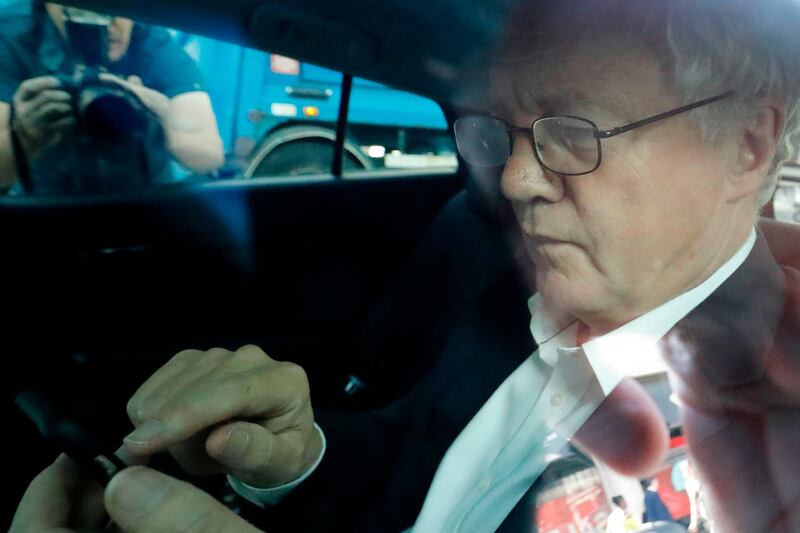After David Davis, the man in charge of the British exit from Europe, quit, has Westminster lost a helmsman in the talks?
No. Mr Davis had a troubled tenure in the department created by Theresa May to oversee the country's exit from a 46-year membership of the European Union. Mrs May was the negotiator in chief. The senior civil servants in charge of the policy looked to her, not the former army reservist Mr Davis, for guidance. He rarely visited Europe for discussions with his opposite number, Michel Barnier. The two held only four hours of face-to-face discussions in 2018.
What are the government's options now?
Senior cabinet minister Jeremy Hunt has said Monday is a clarifying moment. A cabinet position paper agreed last Friday was the spur for Mr Davis's resignation on Sunday night. As Mr Hunt said, the choice is now to fall into Brexit paralysis or to seek a "now-or-never Brexit". Ministers are championing a negotiated exit from the EU along the lines of the cabinet document agreed at Chequers, the prime minister's country home. The key feature of this deal is that the UK would trade exports with Europe under a common set of regulations. Brussels may not accept this offer but for now it's Mr Davis and the pro-Brexit MPs who are lined up against it.
Will the hardcore Brexiteers pull down the government?
So far, the idea of a challenge to Mrs May has not taken off. Mr Davis said she was best for Britain. Jacob Rees-Mogg, who leads the Brexiteer caucus, has said she must withdraw her proposal but that would "not necessarily" mean she must go. Mrs May appears determined to forge ahead on the basis of the cabinet decision, meaning she must face down her internal critics and resist more resignations.
_______________
Read more:
[ Departing Brexit minister quits over 'dangerous' UK policy ]
[ Brexit: Theresa May says EU citizens might get preferred treatment ]
[ Pound investors fear currency slide if May leadership challenged ]
[ Brexit: UK running out of time to do deal, says EU’s chief negotiator ]
_______________
Is it likely that more senior figures will quit?
All eyes are on Boris Johnson, the erratic foreign secretary, who has allowed aides to voice his unhappiness with the cabinet proposal. However, Mr Davis was careful to say his resignation came because he was in charge of delivering the policy. He personally did not think he was the best person to do so. Since Mr Johnson is not directly involved in the negotiations he cannot claim the same pressures exist. Nonetheless, the former journalist and mayor of London is a totemic figure in the Conservative party and his departure would drive the crisis for Mrs May to another level.
Does this squabbling weaken the British hand in the talks?
Europeans watch British politics closely and have been bewildered by the scale of feuding over the future relationship the country wants to pursue with its neighbours. All the while the clocking is ticking on the departure date in March 2019. The outlines of the departure deal have been agreed and mean the UK will continue to pay tens of billions into the EU budget for several years to come. The real challenge is to agree a framework deal on the type of economic and security ties that will be set in place following a short transition period that keeps the same rules and is due to lapse at the end of 2020. If Mrs May can hold the line on her new negotiating position in the coming days, talks with Brussels will intensify ahead of a crunch European summit in October. The alternative is a disorderly exit that would see disruption to trade and transport links.






